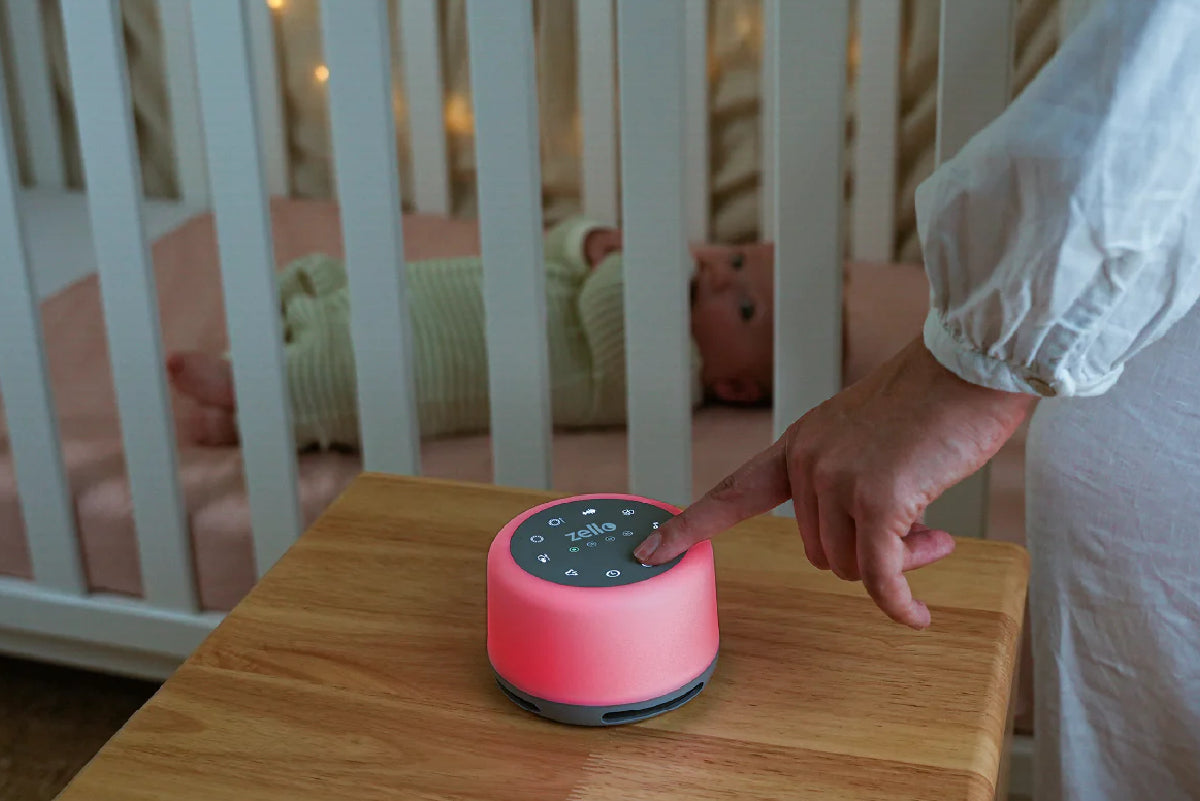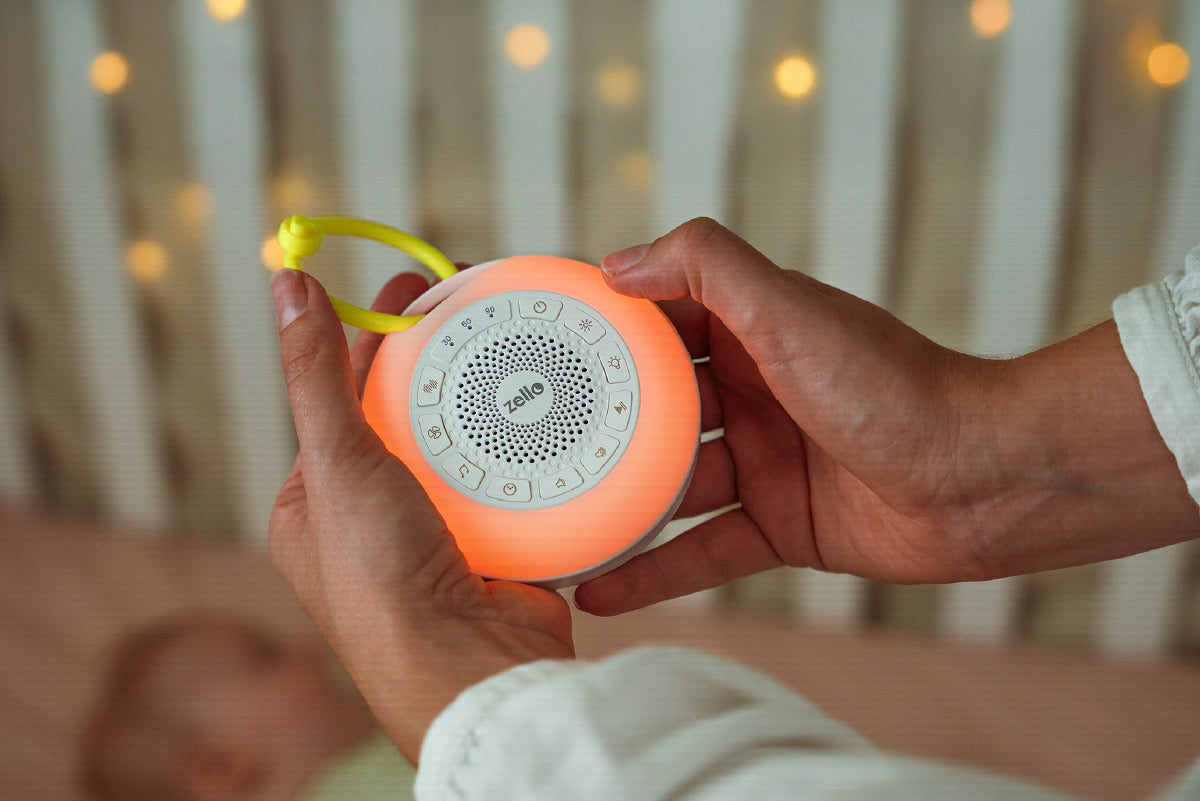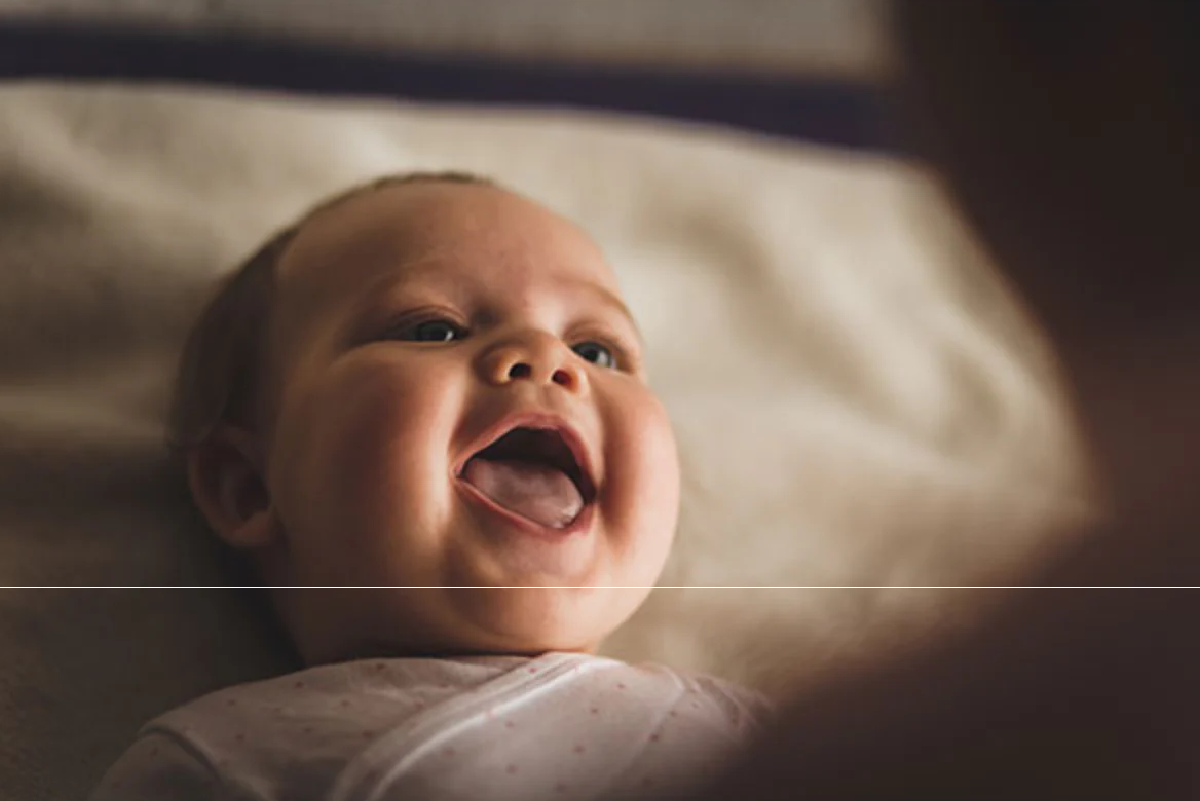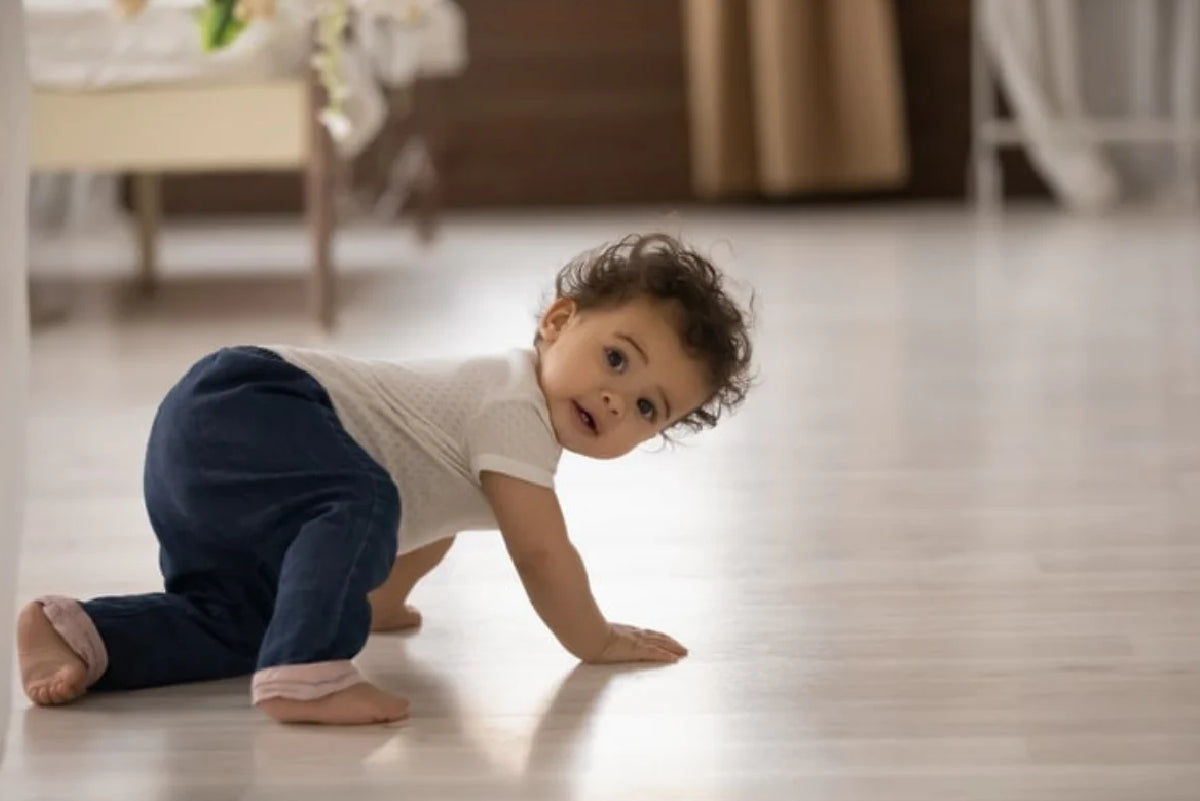White noise is one of the effective go-to sleep aids for babies and there’s a good reason behind it - it mimics the womb, blocks out everyday noise, and helps babies settle quicker and sleep for longer.
However at some point, you may wonder if it’s time to stop using it or start phasing it out. Our handy guide will help you decide if and when to phase out white noise.

Why White Noise Helps Babies Sleep
Before we speak about stopping, we should remind ourselves why white noise for baby sleep works so successfully in the first place.
- It Mimics Sounds of the Womb: The womb is far from quiet. It’s full of swooshing sounds, heartbeat, and blood flow. White noise sounds create a familiar, comforting environment that helps newborns settle.
- It Blocks Out Any Distractions: White noise will drown out doors slamming, dogs barking and siblings playing - so it becomes particularly helpful during nap times in busy households.
- It Signals When It’s Time To Sleep: When white noise is used consistently, it becomes a baby sleep association, as the sound tells their brain that it’s time to wind down.

Is White Noise Safe for Babies?
Absolutely safe, when used correctly. According to paediatric sleep experts, white noise for newborns and infants is safe providing that:
- The volume stays below 50 decibels, pretty much the sound of a soft shower.
- The machine is placed at least 1–2 metres away from the baby’s cot or crib.
-
You avoid sudden, shrill noises, such as alarms or static.
When used properly, white noise is not harmful to your baby’s hearing or their development. In fact, paediatricians actually recommend it during their early months.

What Age Should You Stop Using White Noise?
There isn’t an exact time when you have to stop because every child is different.
Here’s a guide to help you decide:
Newborn to 6 Months: Essential Tool
This is definitely when white noise is most beneficial. It helps the transition for babies from the womb into the big, wide world. It also encourages naps and night-time sleep during the early weeks after birth, often called the “fourth trimester.”
6 to 12 Months: Still Very Beneficial
At this age, many babies still struggle with external noise, waking up very early, and light sleep cycles. White noise can really help with sleep regressions due to teething, travel and all the other ups and downs.
12 to 24 Months: Optional, But Still Useful
By this time, sleep habits become more established. Some toddlers don’t need white noise any more to settle. However, others sleep far better with it, so It’s a personal preference.
2 Years and Up: Time for you to Decide
Some parents start to phase it out at this stage. Others carry on using it for years. If you find your child relies on it but sleeps well, then there’s no harm in continuing.
Therefore, the answer to “What age should a baby stop using white noise?” is when it doesn’t feel necessary or helpful for your family.

The Signs Your Child May Be Ready to Stop
Here are some clues that it may be time to reduce or remove white noise:
- Your toddler becomes distracted by the machine or starts fiddling with it.
- They sleep exactly the same as when it’s accidentally left off.
- You forget to turn it on, and it doesn’t make any difference.
- Your child asks you to stop using it.
If none of these things are happening, and everyone’s sleeping well, there’s no reason to stop using it.

Is White Noise a Sleep Crutch?
Let’s set the record straight.
A sleep crutch is something a child can’t control and always depends upon, such as being fed or being rocked in order to fall back to sleep. However, white noise is passive and predictable so once it’s switched on it stays on. The child won’t have the need to wake up and seek it out. This is why it’s so very different from other crutches.
Sleep experts will often recommend white noise for baby self-settling because it requires no parental intervention or involvement. Therefore, it’s not a bad habit - it’s a tool. Much like any tool, you are the one to decide if and when you want to stop using it.

Is White Noise Detrimental to My Child’s Development?
This is a very common worry and a valid point. The answer is: not at all. White noise isn’t harmful to your child’s development when it is used responsibly.
Studies have shown white noise actually helps babies sleep better, and that in turn supports crucial, healthy brain development. Sleep plays a vital role in memory, learning, and physical growth. Provided that the sound isn’t too loud and not used 24 hours a day, so not during waking hours or play time, it’s not delaying any milestones or overstimulating.
Consistent, quality sleep plays a key role in a child’s development. So if your baby is resting well and thriving, there’s no need to worry about implementing white noise.

How To Wean Off White Noise (If You Want To)
If you make the decision that it’s time to stop, take it slowly. Here’s how you can do it without wrecking their sleep routine.
1. Turn The Noise Down Gradually
Simply turn down the volume bit by bit over a couple of weeks. Start with one or two notches quieter every few nights. Let baby’s ears and brain adjust to the lower sound.
2. Shorten the Duration
If you’ve been running white noise all night, set a timer to switch it off after a couple of hours, gradually reducing how long it plays for.
3. Switch to a Softer Sound
Try swapping from constant white noise to gentle nature sounds, such as waves or rain. These sounds are less intense but still very calming.
4. Phase It Out for Naps First
Start phasing out during nap time which are shorter and lighter. Practice skipping white noise during daytime sleep before you go on to trying it at night.
5. Monitor Their Response
If sleep gets disrupted or becomes harder, you can always bring it back. This isn’t a one-way street. It’s just trial and error.

Do Some Kids Carry On Using It?
Yes, they do and so do many adults! Think about hotel air conditioners, fans, or sleep apps. Lots of children carry on sleeping with white noise right through preschool, school age, and later.
White noise for toddlers and children is regularly used to help with:
- Room sharing with their siblings
- Noisy homes
- Early morning wake-up times
- Light sleepers
Many sound machines, like Zello, provide a large variety of calming noises, not only white noise, and this can help older children feel more at ease. So there’s no need to stop using one unless you feel it’s no longer working for you.

What If You Travel Without It?
You might be questioning yourself as to whether your baby will sleep without white noise if you’re away from home. Well, It depends - if your child has used white noise every night for a few months, they may notice its absence, especially in a noisy hotel or brightly lit Airbnb.
This is why many parents insist on travelling with a portable white noise machine, such as the Zello Portable Pro Max. If you’re planning to stop using it, we suggest testing nap times and then a few nights at home first, and not on holiday.

Follow Your Child’s Lead
The best answer we can give to “When should I stop using white noise for my baby?” is simple. Do it when you’re both ready. There’s no such thing as “too old” for white noise.
It isn’t a bad habit to be kicked and stopping isn’t urgent unless you feel it’s getting in the way of sleep, travel, or through transitions.
Each child is different. Some phase it out naturally whilst others benefit from using it through childhood. Follow your instinct - observe your baby and do what works for your family.
You should remember that the goal isn’t about perfection. It’s about rest, and if white noise helps you get there, then that’s got to be a win!
